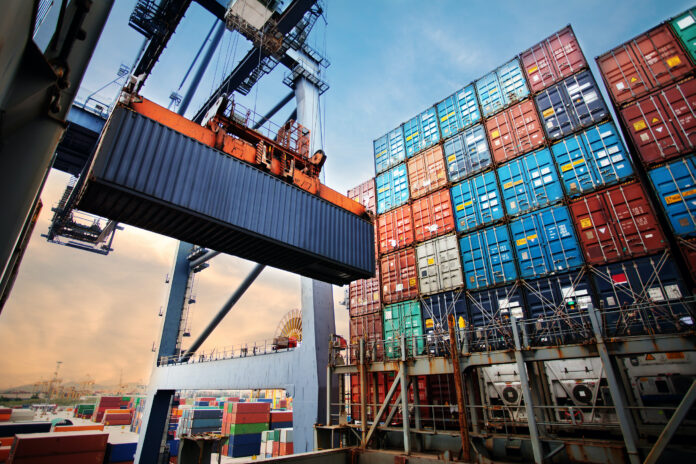ISLAMABAD: Prime Minister’s Special Assistant on Industries and Production, Haroon Akhtar Khan, will present proposals to reduce duties on industrial raw materials for the fiscal year 2025–26 budget to Prime Minister Shehbaz Sharif on June 2.
The development was disclosed during a session of the National Assembly Standing Committee on Commerce, where it was revealed that the proposals had been discussed at a meeting of the Committee on Industry held on May 24. The committee, constituted earlier by the Prime Minister and chaired by Haroon Akhtar, was tasked with drafting recommendations on duties and taxes across sectors. Faiz Ahmad Chadhar, Chief Executive of the Trade Development Authority of Pakistan (TDAP), confirmed the timeline during the standing committee session chaired by MNA Jawed Hanif Khan.
Commerce Secretary Jawad Paul, while briefing the committee, dispelled concerns of any external pressure, particularly from the International Monetary Fund, on the government’s tariff rationalisation efforts. He said significant progress had been made since March 2025 and that changes were being made in line with domestic economic priorities under the FY26 budget.
The committee asked the Commerce Ministry to give a comprehensive briefing on the National Tariff Policy, especially with regard to achieving the Prime Minister’s ambitious $60 billion export target. Members of the committee stressed that tariff liberalisation should not extend to finished goods and luxury items, but should focus on the import of raw materials and industrial machinery to support local manufacturing and productivity.
The meeting also dealt with the ongoing disruption caused by the sudden 60-day ban on the export and import of gold and gemstones, which came into effect on May 7. Stakeholders informed the committee that even consignments already in transit were blocked, leading to severe losses for exporters.
The Commerce Secretary explained that the State Bank of Pakistan had recommended the ban and that a committee under his leadership had been formed to review the matter. Several meetings had already taken place, and the committee is expected to recommend allowing the release of consignments that were already in transit when the ban was announced. He proposed that the issue be taken up again in the next meeting, with representatives from the SBP and the Federal Board of Revenue also in attendance.
MNA Sharmila Faruqui raised concerns regarding the treatment of rice exporters by the Department of Plant Protection (DPP). She alleged that DPP officials were harassing exporters and using banned Indian-origin pests during fumigation procedures, often opening sealed rice consignments under direct orders. A representative of the Rice Exporters Association of Pakistan acknowledged that conditions had slightly improved but noted that operational issues remained. Responding to these concerns, DPP Director General Tahir Abbas said the licence of a company holding 60 percent of the market share had been cancelled for using banned materials. He defended the DPP’s strict enforcement of phytosanitary regulations, saying these had reduced shipment rejections significantly. The committee instructed the DPP to improve administrative oversight and ensure exporters are not harassed.
The Juice Manufacturers Association requested that duty drawbacks on incremental exports be included in the upcoming budget, arguing that such incentives could double their export volumes. The committee also discussed the status of SRO 760, with the chair clarifying that its suspension was a decision made by the federal cabinet and that only the cabinet could reverse it. The issue of interim relief for pipeline shipments was considered a priority, and the Commerce Ministry said necessary requests had already been submitted. The proposal for granting special rebates to food exporting companies was discussed, with members agreeing that such support could help generate additional revenue. The matter was referred to the FBR for further evaluation.
The committee also reviewed two legislative proposals—the Export Development Fund (Amendment) Bill, 2025, moved by MNA Muhammad Mobeen Arif, and the Trade Development Authority of Pakistan (Amendment) Bill, 2025, moved by MNA Usama Ahmed Mela. Since the previously constituted sub-committee had lapsed, the committee decided to establish a new one for further deliberation and to hold the bills until then.
Participants in the meeting included MNAs Muhammad Mobeen Arif, Usama Ahmed Mela, Shaista Pervaiz, Dr Mirza Ikhtiar Baig, Muhammad Atif, Tahira Aurangzeb, Khurshid Ahmed Junejo, Kiran Haider, Mir Amir Ali Khan Magsi, as well as several MNAs who attended virtually, including Asad Alam Niazi, Rana Atif, Muhammad Ali Sarfaraz, Farhan Chishti, and Sharmila Faruqui. Senior officials from the Ministry of Commerce, Ministry of Law and Justice, and Ministry of National Food Security and Research were also present. The committee reiterated its commitment to strengthening trade facilitation, improving industrial competitiveness, and ensuring that reforms align with national economic objectives.




